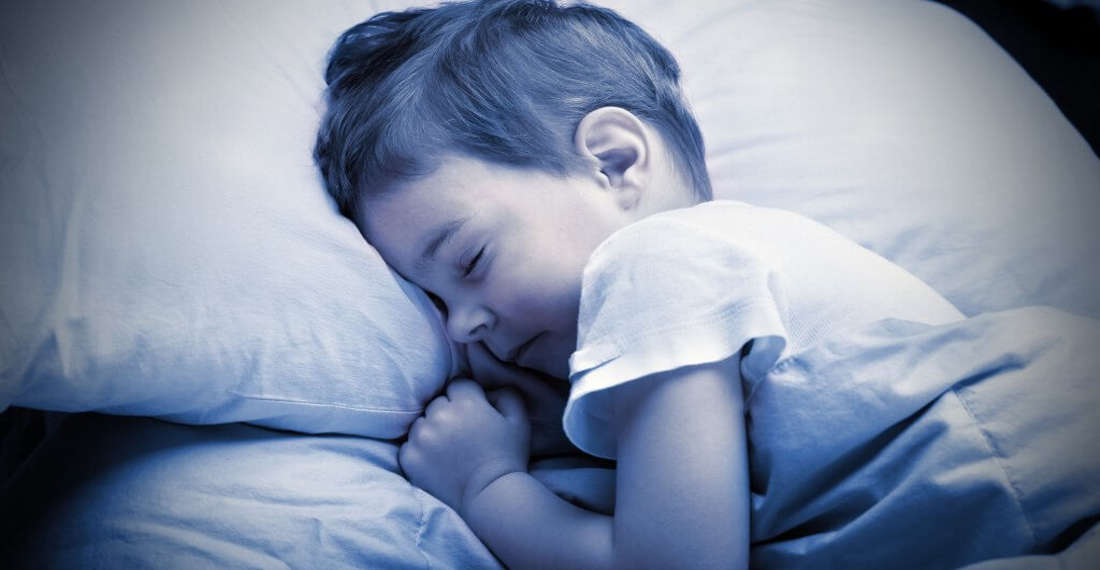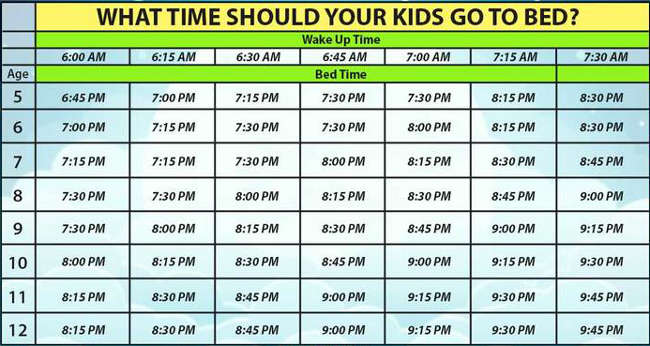Parents are always concerned about the well-being of their children. The trickiest part is to get the child enough sleep so that he wakes up the next morning as fresh as new. If children sleep more than required they become lazy and lethargic and if they sleep less than the required duration, then they feel weary the next day. Both of these situations are problematic for a healthy and active child. This is a struggle that every parent goes through on a daily basis.
Fortunately, a school in Wisconsin – Wilson Elementary School, has prepared a tabulated chart to deal with this struggle. The chart has been developed based upon the different age groups vis a vis their wake-up times. For reference, if a 5 years old wakes up at 6.15 in the morning when he needs to sleep at 7.00 PM. In the same manner, if a child aged 10 wakes up at 6.15 AM then he needs to sleep by 8.15 PM. Broadly, AAP has considered that children between 3-5 years need 10-13 hours of sleep whereas children between 6-12 years need 9-12 hours of sleep.
The significance of bedtime:
The perfect time for sleeping and waking up is compulsory for the good health of the child. It is critical for their mental health too. Irregular meals and irregular sleeping times can lead the child towards obesity.
AAP suggestions:
AAP recommends some more information as the chart developed by the elementary school excludes children below 5 years age. Here are some of its recommendations:
- 4-12 months child needs 12-16 hours sleep (including the naps)
- 1-2 years old child needs 11-14 hours sleep (including the naps)
- 3-5 years old child needs 10-13 hours sleep (including the naps)
- 6-12 years old child needs 9-12 hours sleep (night time)
- The teenagers require 8-10 hours sleep (night time)
Also, these recommendations vary from child to child. Nevertheless, they can be used by all parents as parameters to adjust their child’s sleeping time.
How to ensure your child gets enough sleep?
First, the parents need to regulate the time the child spends in front of mobile phones, tablets and TV. According to the National Sleep Foundation, the light emitted by the screens of these gadgets disturbs the secretion of melatonin. This hormone regulates our sleep. Furthermore, the blue light creates alertness in our mind that delays our sleep. So, make sure your child uses these gadgets 1 or 2 hours before the bedtime to have effective sleep.
Also, you can use book-reading or a warm and nice bath to inculcate the bedtime routine.










